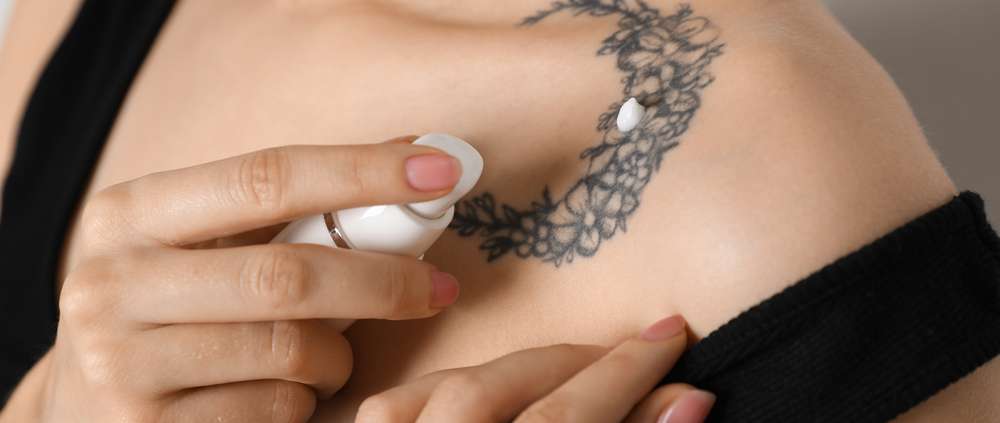The Best Ways to Maintain the Quality of Your Tattoo Over Time
That moment your tattoo is completed is the most beautiful it is ever going to be. While the quality of your tattoo is not going to fade right away, it will gradually look less precise and colorful. Tattoos are for a lifetime, but that does not mean they are a one-and-done deal. You need to maintain them to keep their initial quality for longer than just a few months. If you want your tattoos to look beautiful for a lifetime, this article is going to go over some tips to make that possible.
Protect Your Tattoo From The Sun
One of the things that your tattoo artist is going to tell you right away is to keep your new tattoo away from the sun for a few days. Even after your tattoo is all healed up, sun exposure is its nemesis. Here is why: UV rays can break down the pigments in the tattoo, leading to a loss of color and definition. When selecting a sunscreen for your tattoo, it is important to choose one with a high SPF of at least 30 or higher. This will provide maximum protection from the sun’s harmful UV rays and help to prevent fading or distortion of the tattoo’s colors. Water-resistant sunscreen is also a great idea if you plan on going swimming often.
For those who have sensitive skin or who experienced any kind of allergic reaction to the tattoo, make sure you select a gentle, fragrance-free sunscreen. That will ensure the lotion does not cause any irritation.
Choose The Placement Well
You may be wondering if tattoos on certain body parts age better than others. The answer is yes. The longevity of a tattoo depends on various factors such as the location of the tattoo, the size of the tattoo, the quality of the ink, and how well it was done. As mentioned earlier, body parts that receive less sun exposure and are not subject to constant movement tend to age better. For example, tattoos on the chest, back, or upper arms tend to age better than those on the hands, feet, or fingers. This is because the skin on these areas is less exposed to sun damage and is less likely to stretch or wrinkle over time.
Tattoos on the hands and feet tend to fade quicker due to the constant movement and rubbing of the skin in these areas. In addition, tattoos on the hands and fingers are subject to frequent washing, which can cause the ink to fade over time.
Tattoos on the face, neck, and other highly visible areas may also age differently due to the impact of sun exposure and the constant visibility of the design. It is recommended to take extra care of tattoos in these areas, such as wearing sunscreen and moisturizing regularly.
In other words, consider where you are putting the tattoo. You should take into consideration your job, how long you spend outside, and so on.
Keep Your Tattoo Moisturized
Hydrated skin is healthy skin. For your ink, this makes moisturizing more important than ever before. Dry skin will cause your tattoo to look dull and aged, which will ultimately affect its design. In the morning and night, moisturize your skin.
Don’t know which kind to choose? Some options include fragrance-free lotion, coconut oil, and shea butter. You can also find moisturizers made specifically for tattooed skin. These formulas are typically made with ingredients like aloe vera, jojoba oil, and vitamin E.
Avoid Soaking a Brand New Tattoo
Swimming, hot tubs, and long baths can cause harm to your tattoo, especially if it is newly done. The water can cause the ink to spread, leading to blurring of the design. It is best to avoid soaking your tattoo for at least two weeks after getting it done.
Of course, there are other risks of getting your tattoo too wet during the healing process. Soaking a new tattoo increases the risk of infection, because bacteria can get into the open wound. The scab may also soften and fall off prematurely, delaying the healing process. If you lose the scab too soon (another reason why you cannot scratch an itchy tattoo), the ink may blur.
Touch Up Your Tattoo
Tattoo artists recommend that you should touch your tattoo up every few years to ensure the quality remains intact. Touch-ups restore the tattoo to its original quality and rejuvenates the color. Unfortunately, most people cannot always commit to routine touch-ups, leading to ink that becomes faded and dull. There are some instances when the entire tattoo, including the line work, has to be revamped. If you are unsure about what to do, consult your tattoo artist.
To Exfoliate or Not
When it comes to whether you should exfoliate an area that has been tattooed, it all comes down to the when. You never want to exfoliate a new tattoo until it has passed at least 3 months. During the first few months, the ink in your skin is located in the upper layers, closer to the surface. After that, the ink settles deeper, far beyond the skin that is affected by exfoliating.
After that, exfoliating can help to maintain the vibrancy of a tattoo by removing dead skin cells that can accumulate on the surface of the skin, causing the tattoo to look dull. Exfoliating can remove these dead skin cells, revealing the vibrant colors and intricate details of the tattoo. Furthermore, it is important to use gentle cleansers and brushes or cloths. It is also important to moisturize the skin after exfoliating to keep it hydrated and prevent dryness.
Let Us Help You Maintain Your Tattoo
By following these tips, you can keep your tattoo looking vibrant and fresh for a lifetime. Remember, a tattoo is not just a design on your skin; it is a piece of art that deserves proper care and maintenance. You can keep your tattoos looking like newly done work for longer by following the after care instructions from your artist and protecting it from the sun. If you need a touch up or would like your ink revamped, the professionals at Oracle Tattoo Gallery can help. Get in touch with us today by calling or filling out the consultation form. And if you are looking for a new piece, check out our Instagram for some inspiration.



